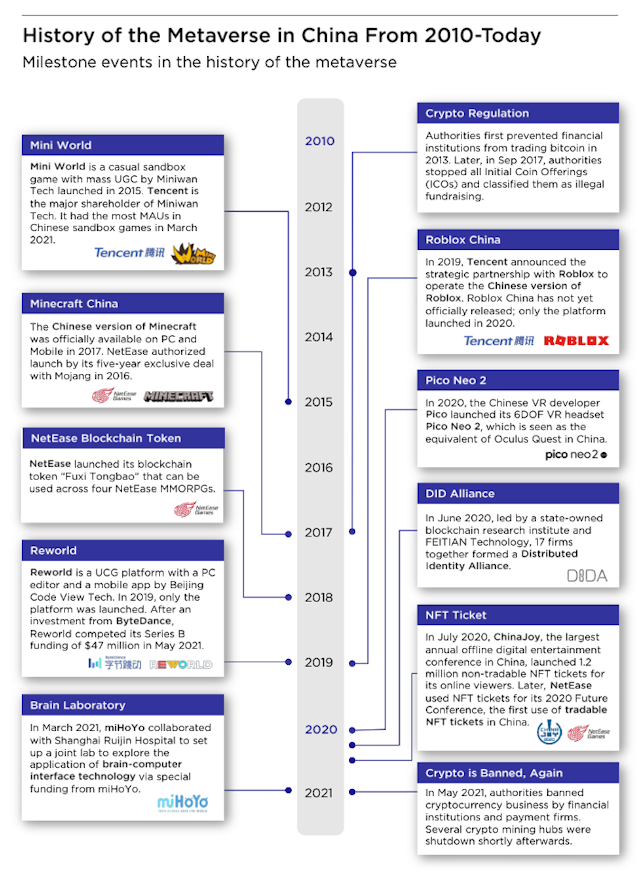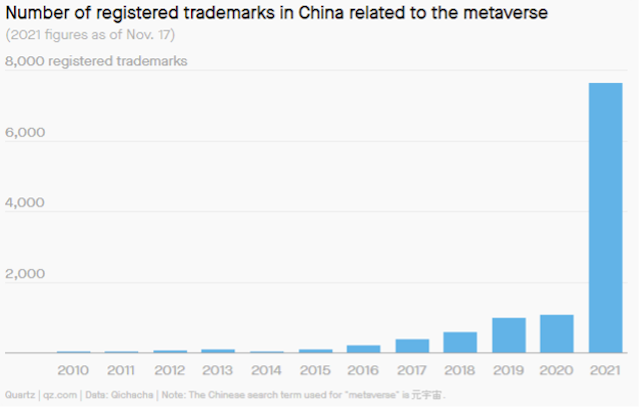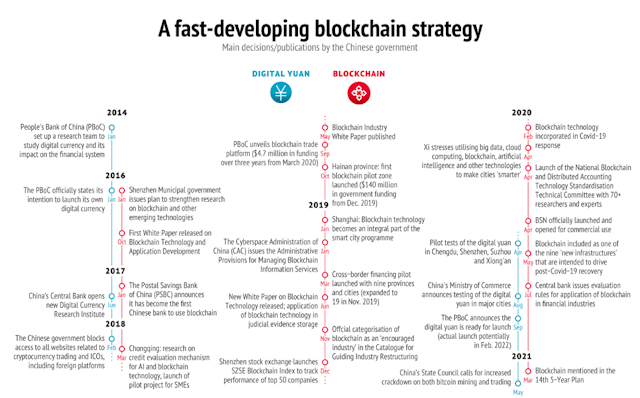Is the first real metaverse being built now in China?
Ramzi Chaabane, managing director at Stink Studios, wonders if the metaverse will actually be built by Chinese tech giants.

Chinese tech companies are investing massively headlong into the metaverse / Pixabay
As we have seen in the NFT space, Chinese tech giants invest with caution, but not without ambition. Although the concept of the metaverse is still roughly defined as virtual worlds in which people will play and live, what we have seen elsewhere with Meta or Nvidia is that the metaverse is a parallel universe.
This means Chinese tech companies are aiming at a different and rather surprising approach to the metaverse.

A very important reason why is due to the volume of potential users, making Chinese companies rather prudent. The total potential market of the Chinese metaverse is estimated to be at around $8trn by Morgan Stanley.

Search engine Baidu posted a virtual world called Xi Rang online last year, which can already accommodate up to 100,000 people simultaneously, but was quick to temper expectations. Xi Rang’s founder roughly estimated that it will take six years to see a truly functioning and established metaverse.
They have realized that there is still a lot of work to do to offer users a quality metaverse experience. Fluid, intuitive and ergonomic navigation will have to be put in place for mass adoption to explode. But it will take years to see an operational platform.
Last September Tencent filed a registration application for a hundred trademarks related to the metaverse, including ‘QQ metaverse,’ ‘QQ Music metaverse’ and ‘Kings metaverse.’ ByteDance has also invested 100m yuan in Qiankun (a kind of Roblox), a metaverse concept mobile game developer, and NetEase has implemented metaverse concept products such as the immersive ‘Yaotai’ system, an artificial intelligence (AI) virtual host, and ‘planet blockchain,’ a blockchain-based value-sharing platform.
The metaverse – the future of social networks?
On the regulatory side, Beijing enacted new standards in January on recommendation algorithms, accompanied by a section on so-called ‘deep synthesis’ technologies, which will be used to generate or modify voices, videos, images or virtual sets. Chinese tech companies now have to tell users about their algorithms, and this could shape a global algorithm regulatory landscape. The fact that China did that before the rest of the world is again quite groundbreaking. A similar ruling is taking place now with the EU AI Act.
Tencent is forming a powerful content ecosystem and becoming the largest PGC content platform in China. As of the second quarter of 2021, the number of users paying for Tencent’s value-added services reached 229 million, including 125 million for Tencent’s video and 66 million for Tencent’s music value-added services.
Companies such as Tencent, NetEase, ByteDance and Alibaba will be the main players in the sector, depending on the type of applications that will be adopted in the metaverse, such as virtual reality (VR), games and social networks.
We can see recently that China’s approach to blockchain is growing more confident and unequivocal, whereas other countries have been more uncertain about endorsing this technology. All Chinese tech giants will find new ways to reach the younger generation of internet users, which is critical as their smartphone and mobile internet business models are challenged.
Born between the late 1990s and the early 2010s, gen Z accounts for around 15% of China’s population and is gaining more and more spending power, so winning them over is essential for any consumer-facing company. Right now, the metaverse is seen as a key to establishing deeper ties with this generation.

Ultimately, Chinese companies are taking leaps in metaverse initiatives and innovation. Tencent, Baidu, NetEase, ByteDance and Alibaba, among others, have all the skills, technologies and – most importantly – the ambition to develop metaverse solutions. At the same time, China is already one of the most advanced countries in the development of central bank digital currencies. As of June 30 2021, nearly 70m wallets had been opened, with which more than 70m transactions were carried out for a value of 35bn yuan (about $5.3bn). Four months later, the number of digital wallets has doubled and the value of transactions is approaching $10bn.
What we see in China is a more gradual transition to a ‘real metaverse’ not defined as a VR space accessible through a headset, but a Chinese metaverse focusing on AI backed by tech platforms already relevant in our everyday activities.
A China-verse tomorrow?
China’s approach to blockchain is growing more confident and unequivocal, whereas other countries have been more uncertain about endorsing this technology. Although it is still too early to accurately evaluate China’s blockchain strategy, the ambition to have a blockchain with Chinese characteristics in parallel to the development of the digital yuan is a strong rational approach to a solid basis for future innovation.

It will not be tomorrow; however, we can say for sure that the evolution of web2 is already under way in China... the race has started.
